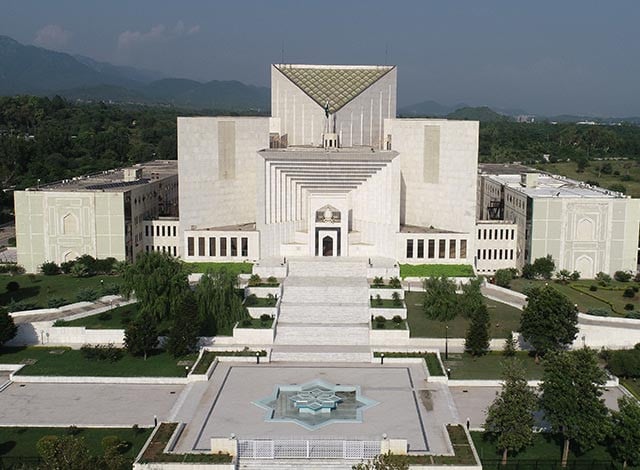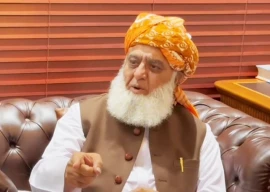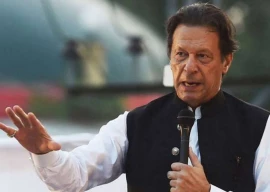
The Supreme Court on Thursday emphasized that interpreting articles in the Constitution was unnecessary when they lacked ambiguity. The court added that cases could be referred to a larger bench if an article hadn't been previously interpreted.
The hearing pertained to the federal government's challenge against the Khyber-Pakhtunkhwa Anti-Narcotics law. The additional attorney general argued that the case involved constitutional interpretation and should be heard by a five-member bench under the Practice and Procedure Act.
In response, Justice Mansoor Ali Shah cautioned against routinely referring cases to a five-member bench. He highlighted that Article 143 had been interpreted multiple times before, stressing that interpretation was unnecessary when articles were clear.
The hearing adjourned until Friday for further proceedings.
Personal publicity
Separately, the federation along with the four provincial governments on Thursday assured the Supreme Court of not carrying out personal publicity on public development projects.
In 2023, the top court, in a verdict had stated that personal publicity should not be done on public projects.
A three-member bench of the apex court led by Chief Justice Qazi Faez Isa heard a case pertaining to self-promotion on public schemes.
The top court sought affidavits from the federal and provincial governments on the matter.
The chief justice remarked that every province was on the same page on the issue of personal publicity, adding that there was no opposition among them on the issue.
The law officers of the federation and the four provincial governments assured the apex court of not carrying out personal promotions on pubic development projects.
During the hearing, the chief justice expressed concern over 80 law officers in Sindh, noting that there was a “battalion of law officers in Sindh”, while there was no permanent law officer in Islamabad.
The court was told that there were 18 law officers in Balochistan, 40 in Khyber-Pakhtunkhwa, and 86 in Punjab.
The chief justice remarked that there were 86 law officers in Punjab, the most populous province, but Sindh had 80.
The counsel for the Punjab Government said that they were reducing the number of law officers from 86 to 66.
Later, the court adjourned the hearing of the case for two weeks.

1724760612-0/Untitled-design-(12)1724760612-0-405x300.webp)
















COMMENTS
Comments are moderated and generally will be posted if they are on-topic and not abusive.
For more information, please see our Comments FAQ